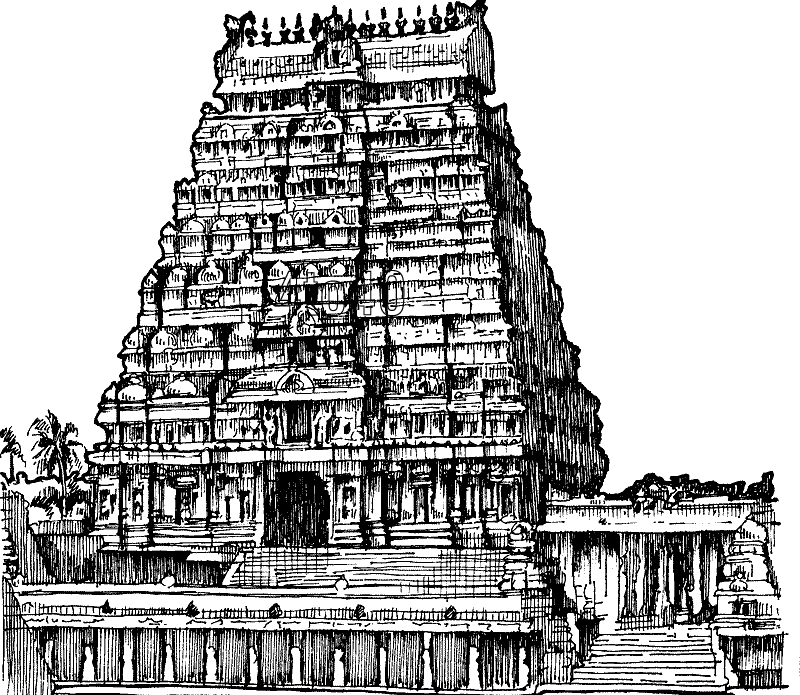LALITHA SAHASRANAMAM
@ S. Subramaniam

[ 47 Nishchinta Nirahankara Nirmoha Mohanashinee ]
निरहंकारा (161
Nirahankara (161)
Meaning
Devi does not have any ego.

Interpretation:
In this namah Ahankara stands for ego and Nir adds negativity to it making the meaning of the word - a person without any Ego. Devi has been described by the Vaag Devi-s as being without any ego or Nirahankara.
For easy understanding, Ahankara can again be split into Aham + Kara
Here Aham means "I" and kara stands for "doing" or "performing".
Thus, ahamkara is the self that is doing or the personality associated with it, claiming "I have done it" or in simple terms Ego.

By addressing Devi as Nirahankara we seek her blessings to shun our own ego.
Nirahankara - Quotes from various Sanskrit hymns
Quote 1 of 3: From the Bhagavad Gita
In chapter 12 of Bhagavad Gita we find a mention of the word Nirahankara

अद्वेष्टा सर्वभूतानां मैत्र: करुण एव च |
निर्ममो निरहङ्कार: समदु:खसुख: क्षमी ||
Adveshta sarva bhutanam maitrah karuna eva cha Nirmamo Nirahankarah sama-duhkha Sukhah kshami.
The Lord says:
Those devotees are very dear to Me who are free from malice toward all living beings, who are friendly, and compassionate. They are free from attachment to possessions and egotism, treats happiness and distress equally and are ever-forgiving.

Quote 2 of 3: From the Skanda Purana
In a conversation between sage Vasishta and King Kalmashapada of the Ikshvaku dynasty, the sage underlines the importance of doing away with egotism
वसिष्ठ उवाच ।
अत्रार्थे तीर्थयात्रां त्वं कुरु पार्थिव सत्तम ।
निर्ममो निरहंकारस्ततः सिद्धिमवाप्स्यसि ॥७८॥
Vasishta uvacha |
Atrarthe tirthayatram tvam kuru parthiva sattama | Nirmamo Nirahamkara statah siddhim avapsyasi
For this purpose, O excellent king, undertake a pilgrimage free from egotism and sense of possession. Thereby you will attain fulfilment.

Quote 3 of 3: From the Shiva Purana
In the holy text Koti Rudra Samhita which is a part of the Shiva Purana Lord Maha Vishnu (Sriman Narayana) describes the thousand names of Lord Shiva and explains them to Suta. One of the thousand names of Lord Shiva is Nirahankara
Nirmama – Detached
Nirahankara – Free From Egotism
Nirmoha – Free From Delusion
Nirupadrava – Harmless
Author's Notes
For the ardent devotees of Devi Lalithambika, the Mother goddess is the Supreme power, She is Adi Parashakti. She is Parabrahman. Shevis beyond all these human feelings such as ego etc.

As mentioned in the Interpretation part, Devi can never be imagined to say " I performed " or have Ahamkara. Every minute action in this world universe emanates from her only. Then, how can Devi be called Ahankara or Nirahankara?
Vaag Devi-s intention to use the term obviously is to induce devotees to shun the egoism from them. Therefore the term Nirahankara, like many other namahs in the LSN, is directed towards the devotees and to Devi.
Disclaimer: All matters contained in this article are the property of www.templesofasia.com. The opinions expressed in this article are purely that of the author. The author alone is responsible for the accuracy, authenticity, completeness and validity of all the information in the article.


Comments